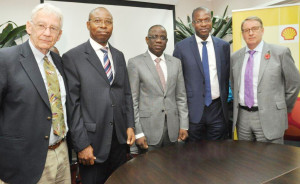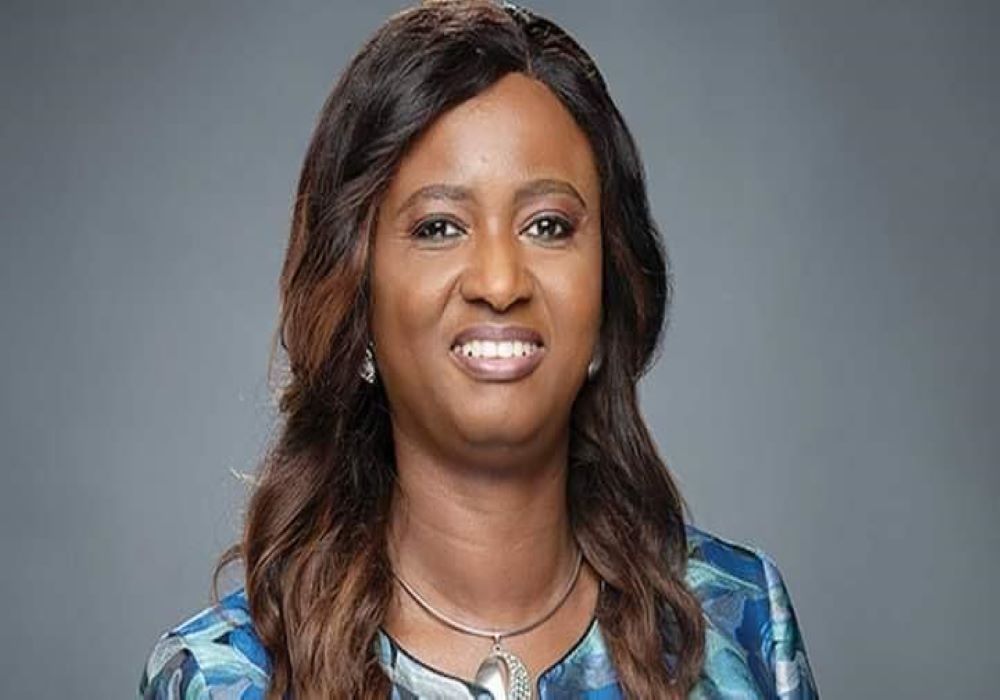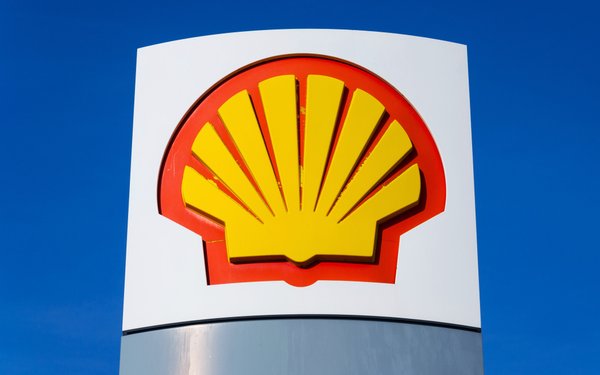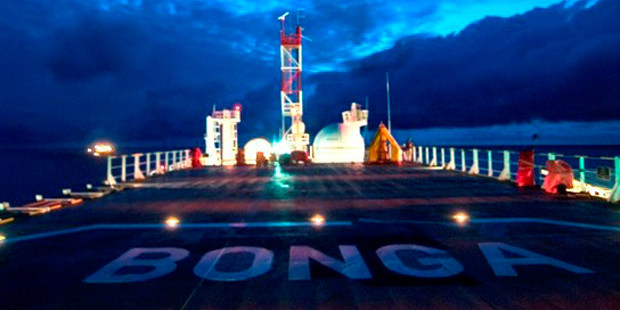Oil
SNEPCo promotes safe cooking method in Nigeria with Ethanol clean cookstoves

By Yemie ADEOYE
LAGOS-SHELL Nigeria Exploration and Production Company (SNEPCo) has signed an agreement with Project Gaia Prospects Limited (PGPL) for the conduct of a pilot study on the use of Ethanol clean cookstoves, a cleaner and safer way of cooking. SNEPCo will provide 2,500 clean cookstoves and 15,000 canisters for distribution to households in Lagos while PGPL will ensure the supply of Ethanol fuel blended with methanol during the one-year study. The (M)Ethanol clean cookstoves project aims to reduce mortality associated with indoor air pollution by providing cleaner and healthier cooking alternative to kerosene, firewood and charcoal.

L-R: Managing Director, Shell Nigeria Exploration and Production Company, Bayo Ojulari; General Manager, External Relations, Mr. Igo Weli; and the General Manager, Production Services, Mr. David Martin, at the signing of a partnership agreement for a pilot study on the use of (M)Ethanol cook stoves at the SNEPCo office in Lagos.
The Global Alliance for Clean Cookstoves (GACC) estimates that household air pollution contributes to 70,000 premature deaths every year and affects 127 million people in Nigeria.
“We’re pleased to promote a safer cooking system in Nigeria as part of efforts to encourage access to a better source of energy,” said Bayo Ojulari, SNEPCo Managing Director, at the signing ceremony on Nov 5.
“There is a compelling case for action on a better and leaner cooking method. I’ll be taking a personal interest to ensure the agreement we’ve just signed delivers on all promises and opens the door to safer cooking in Nigerian households.” Harry Stokes, the Director of Project Gaia International said:
“We started this journey with Shell International in 2001 and executed the first project three years later in Brazil and Haiti with support from Shell Foundation. We then went to Ethiopia where the government has supported the use of Ethanol clean cookstoves in all refugee camps because of the inherent health benefits. We’re happy that the project is now in Nigeria with the active support of SNEPCo.”
He said Project Gaia plans the fabrication and assembly of the (M)Ethanol clean cookstoves in Nigeria to ensure their availability and promote local content development in Nigeria. Also speaking, Shell’s General Manager, Production, David Martin who serves on the board of the GACC said: “We eagerly look forward to the completion of the pilot study in Lagos so the benefits can quickly spread to other parts of Nigeria. This is about saving lives, stopping deforestation, and creating employment through the production of the clean fuels in-country and the planned local assembling of (M)Ethanol clean cooktsoves by Project Gaia.”
SNEPCo had earlier supported a pre-pilot health study in Ibadan, the Oyo State capital under the supervision of Prof. Christopher Olopade, a specialist in pulmonary medicine at the School of Medicine of the University of Chicago in the United States.
The 150 households covered in that study said they found the Ethanol clean cookstoves better and more convenient. SNEPCo hopes to promote wider usage of the new cooking system and encourage families to switch from unclean fuels through the Lagos pilot. SNEPCo’s role in the (M)Ethanol clean cookstoves project in Nigeria follows from Shell’s active participation in the Global Alliance for Clean Cookstoves. The Alliance is working with governmental stakeholders and partners to enable 17.5 million households to adopt clean cookstoves and fuels in Nigeria by 2020.
Oil
FG Introduces New Incentives To Revitalize Nigeria’s Oil & Gas Industry
In a strategic move to revitalize Nigeria’s oil and gas sector, the Federal Government has unveiled two key fiscal incentives aimed at attracting investment and enhancing energy security.
The announcement was made by Mr. Wale Edun, the Minister of Finance and Coordinating Minister of the Economy on Wednesday.
The first initiative, the Value Added Tax (VAT) Modification Order 2024, introduces critical exemptions for essential energy products and infrastructure, including Diesel, Feed Gas, Liquefied Petroleum Gas (LPG), Compressed Natural Gas (CNG), Electric Vehicles, Liquefied Natural Gas (LNG) infrastructure, and Clean Cooking Equipment.
Read Also: Atiku Calls For Rotational Presidency Across Nigeria’s Geopolitical Zones
These exemptions are designed to reduce living costs for Nigerians, promote energy security, and accelerate the transition to cleaner energy alternatives.
The second initiative, the Notice of Tax Incentives for Deep Offshore Oil & Gas Production, offers new tax relief options for deep offshore exploration projects.
This measure aims to position Nigeria’s deep offshore basin as a premier destination for international oil and gas investments, boosting the country’s appeal to foreign investors.
These reforms are part of a broader set of policy initiatives, known as Policy Directives 40-42, endorsed by President Bola Ahmed Tinubu.
The directives reflect the administration’s commitment to fostering sustainable development in the energy sector and enhancing Nigeria’s competitive edge in the global oil and gas market.
Business
Tinubu set to approve ExxonMobil-Seplat oil deal, expands CNG bus initiative

By Yemie Adeoye
NIGERIA’s President Bola Tinubu has announced that the protracted ExxonMobil-Seplat upstream oil divestment will be formally approved by the Minister of petroleum within a matter of days, just as he announced his government’s intention to expand the Compress natural Gas, CNG buses initiative.
The President who stated this during his Independence day nationwide broadcast stated that the move is in line with his administration’s commitment to free enterprise, free entry and free exit in investments which is the hallmark of his administration investment policy.
“Fellow compatriots, our administration is committed to free enterprise, free entry, and free exit in investments while maintaining the sanctity and efficacy of our regulatory processes. This principle guides the divestment transactions in our upstream petroleum sector, where we are committed to changing the fortune positively. As such, the ExxonMobil Seplat divestment will receive ministerial approval in a matter of days, having been concluded by the regulator, NUPRC, in line with the Petroleum Industry Act, PIA. This was done in the same manner as other qualified divestments approved in the sector.”
The President also seized the opportunity to plead with Nigerians to be patient with his administration’s reform policies. “As your President, I assure you that we are committed to finding sustainable solutions to alleviate the suffering of our citizens. Once again, I plead for your patience as the reforms we are implementing show positive signs, and we are beginning to see light at the end of the tunnel”.
“Our energy transition programme is on course. We are expanding the adoption of the Presidential Initiative on Compressed Natural Gas for mass transit with private sector players. The Federal Government is ready to assist the thirty-six States and FCT in acquiring CNG buses for cheaper public transportation.
Fellow Nigerians, while we are working to stabilise the economy and secure the country, we also seek to foster national unity and build social harmony and cohesion. Our economy can only thrive when there is peace”. he enthused.
Oil
ExxonMobil To Invest $10bn In Nigeria’s Deep-Water Oil Operations
As part of the administration’s push to improve Ease of Doing Business (EoDB), Nigeria’s Vice President Kashim Shettima has expressed support for ExxonMobil’s plan to invest $10 billion in the country’s deep-water oil sector.
Speaking on Wednesday, September 25, 2024, during a meeting with ExxonMobil executives at the 79th United Nations General Assembly (UNGA) in New York, Shettima called the investment “a clear testament to the administration’s economic reforms and investor-friendly policies.”
Read Also: Offset Accuses Cardi B Of Cheating During Pregnancy
This announcement follows news that international maritime company DP World intends to develop a multibillion-dollar port project in Nigeria.
Stanley Nkwocha, Senior Special Assistant to the President on Media and Communications, shared the development in a statement on Wednesday. He quoted Shettima as saying: “ExxonMobil’s potential investment aligns with the vision of President Bola Ahmed Tinubu’s administration for a more investment-friendly Nigeria.
We are committed to fostering an environment that supports such transformative projects.”Shettima also discussed the administration’s broader efforts to improve the ease of doing business, highlighting the “Renewed Hope Agenda,” which aims to simplify bureaucratic processes, enhance transparency, and offer fiscal incentives to attract global investors.
“Our administration has taken bold steps to unify the exchange rate, remove fuel subsidies, and implement tax reforms. These measures, though challenging in the short term, are intended to create a stable and predictable business environment in the long term,” he added.
On the oil and gas sector, Shettima mentioned that the government is revising the fiscal framework for deep-water operations to attract investment while ensuring fair returns for the Nigerian people.

















